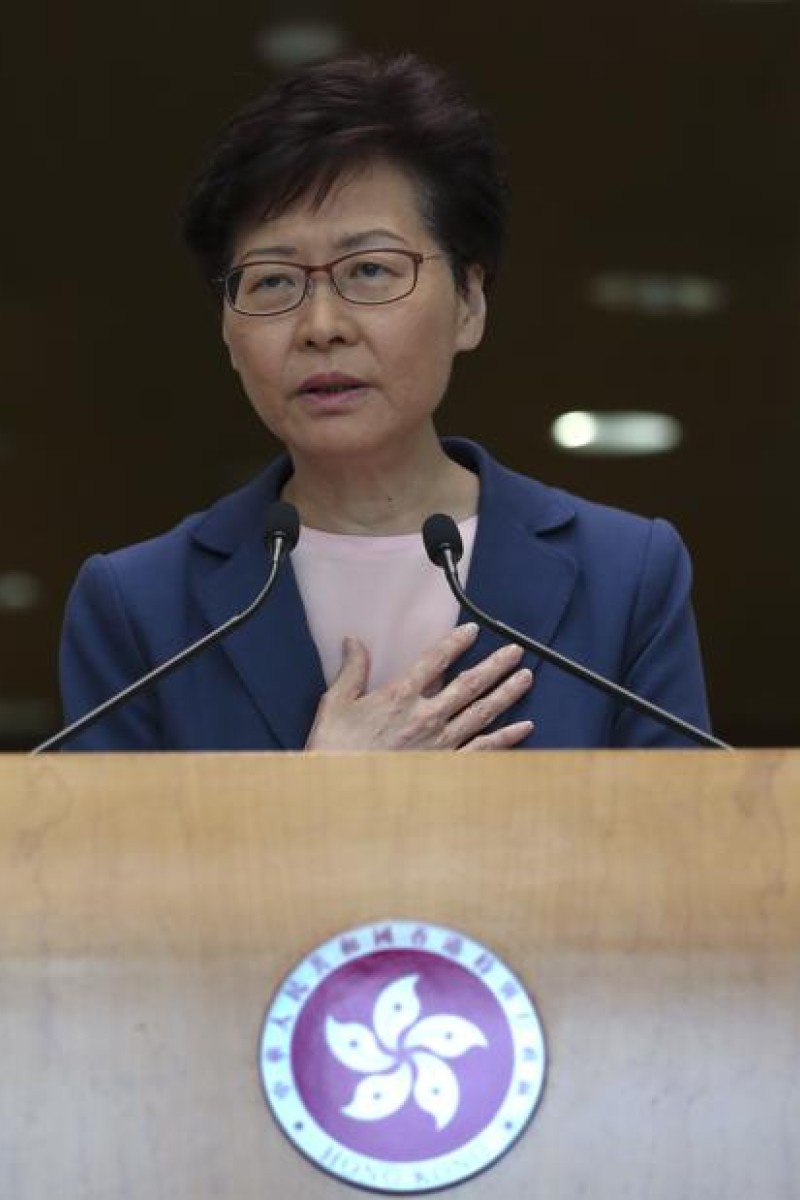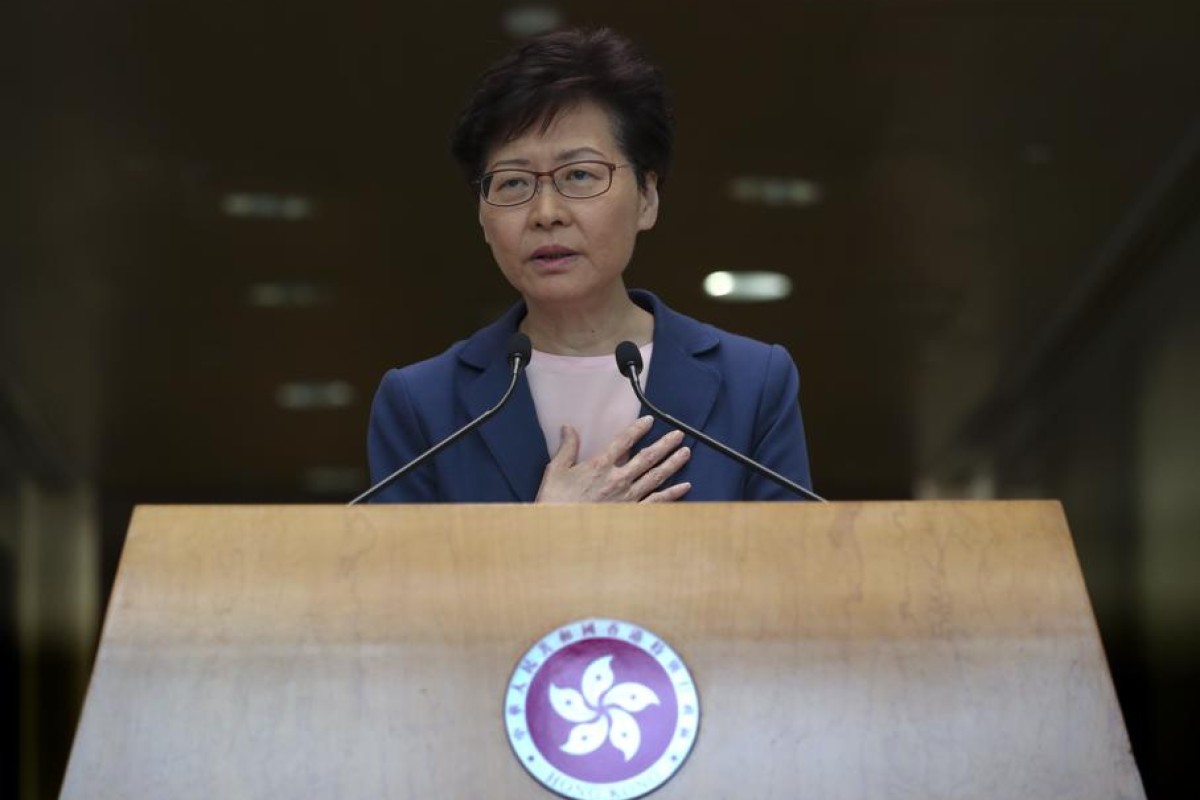
Hong Kong extradition law: Carrie Lam may have declared the fugitive bill 'dead', but what does that mean, and what comes next?
 Lam has not 'withdrawn' the bill, but says 'the bill is dead'.
Lam has not 'withdrawn' the bill, but says 'the bill is dead'.This morning, Hong Kong leader Carrie Lam Cheng Yuet-ngor declared the extradition bill “dead”.
Speaking before the weekly meeting with her advisers in the Executive Council yesterday morning, Lam described the work in amending the law as a “complete failure”. She admitted there were doubts that the government could restart the amendment process within Legco’s current term, which ends in 2020. “There is no such plan, the bill is dead,” Lam said.
Speaking to Young Post, Professor Joseph Chan Cho-wai, at the department of politics and public administration of the University of Hong Kong, believes there is no practical difference between calling the bill dead and a withdrawal. At the same time, though, he also said Andrew Wong Wang-fat, the former president of the Legislative Council, was clear in saying there is no such thing as a “suspension” under Legco rules.
“There is either postponement or withdrawal. Pick one,” Chan said, quoting what Wong said in a RTHK TV programme appearance earlier.
The bill would have allowed Hong Kong to transfer suspects to jurisdictions it lacks extradition agreements with, including the mainland. Critics feared it would expose suspects in Hong Kong to unfair trials across the border.
Associated Press reported that Hong Kong protest leaders said that they will continue their demonstrations.
Joshua Wong speaks to the world on situation in Hong Kong
“We cannot find the word ‘dead’ in any of the laws in Hong Kong or in any legal proceedings in the Legislative Council,” protest leaders Jimmy Sham and Bonnie Leung said in statements in English and Cantonese.
“So how can the government tell us that we should preserve our rule of law, when [Lam] herself does not use the principle of the rule of law,” the statements said.
Sham and Leaung also said Lam was being hypocritical in claiming to have met demonstrators’ demands without actually speaking to them directly.
Students explain why they joined the July 1 protests
“Instead, she should really stand out and talk to the young protesters,” Leung said. “The young protesters have been out in the street outside her house, outside government headquarters, for weeks, roaring to be heard.”
The chief executive also said she was “willing to engage in an open dialogue with students without any preconditions”.
Student leaders from eight universities said they would only talk to Lam if she agreed to their two conditions on Friday: meet them in a town hall-style open meeting and promise to exonerate protesters.
However, Lam stood firm on not setting up a top-level probe into clashes between police and protesters.
She said the Independent Police Complaints Council would launch an investigation, and that all parties involved in the demonstrations, including protesters, police, media and onlookers, could provide information.
Lam also touched on the 2014 Occupy movement, during which protesters had called for the implementation of genuine universal suffrage.
A glimmer of humour with the best of the best anti-ELAB memes
“Five years ago, we finished Occupy Central, we moved on, without addressing those fundamental problems,” Lam said. “But this time I don’t think we can continue to ignore those fundamental and deep-seated problems.”
Asked if she would restart discussions on political reform, Lam said she was “not targeting a particular issue”.
She added: “It could be economic problems, it could be livelihood issues, it could be political divisions in society.”
